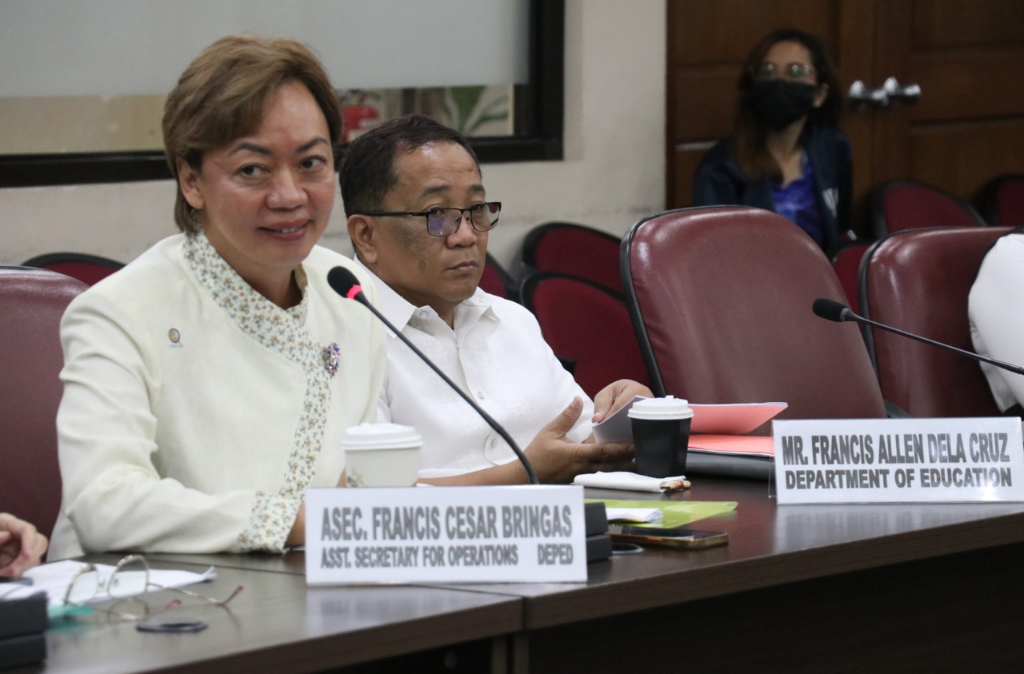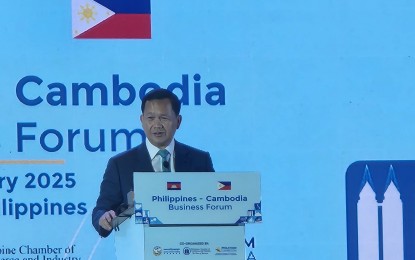A quick school year: DepEd to force back the June-March school year.
DepEd to force aggressive academic year transition

DepEd Proposes Return to June-March Academic Calendar Amid Extreme Heat Concerns
The Department of Education (DepEd) is considering a significant shift in the Philippine academic calendar, proposing a return to the traditional June to March school year starting in the 2025-2026 school year. This move, described as an "aggressive alternative," aims to address the challenges posed by the extreme heat experienced during the current school calendar, which runs from July to May.
The Proposal and Its Rationale
According to DepEd Assistant Secretary Francis Bringas, the department has submitted a formal proposal to President Ferdinand Marcos Jr. for review. While the specific conditions of the proposal remain undisclosed, Bringas emphasized that the change is intended to mitigate the adverse effects of unpredictable weather patterns on students and educators.
The extreme heat during the summer months has raised concerns about the health and well-being of students, particularly in schools without adequate ventilation or cooling systems. By shifting the academic calendar back to its traditional schedule, DepEd hopes to create a more conducive learning environment.
Adjustments During the Transition
If approved, the transition to the June-March calendar would involve significant adjustments. For the 2024-2025 school year, DepEd has proposed a shortened academic calendar with only 165 school days, compared to the usual 180 to 220 days prescribed by law. This would allow the school year to end on March 31, 2025, paving the way for the new schedule to begin in June 2025.
However, this aggressive transition would also mean a shorter end-of-school break for students and teachers. While this may pose challenges, DepEd officials believe the long-term benefits of the calendar shift outweigh the temporary inconveniences.
Support from Key Stakeholders
The proposal has garnered support from Senator Sherwin Gatchalian, chairperson of the Senate Basic Education Committee. Gatchalian has expressed his approval of the transition, citing the unpredictability of the current school calendar's weather conditions as a key factor. He believes that aligning the academic calendar with more favorable weather patterns will benefit both students and educators.
DepEd Order No. 3, Series of 2024
The proposed changes build on DepEd Order No. 3, Series of 2024, which was issued on February 19, 2024. This order adjusted the current school year's end date from June 15 to May 31, 2024, and established the opening and closing dates for the 2024-2025 school year. Under the order, the next school year is set to start on July 29, 2024, and end on May 16, 2025.
These adjustments reflect DepEd's ongoing efforts to address the challenges posed by the current academic calendar while ensuring compliance with legal requirements.
Balancing Challenges and Opportunities
While the proposed shift to a June-March academic calendar has its merits, it also presents challenges. Shortening the school year to 165 days may impact the delivery of the curriculum, requiring educators to adapt their teaching strategies to ensure that learning outcomes are met. Additionally, the shorter break between school years may place added pressure on students and teachers.
However, proponents of the change argue that the benefits—such as improved learning conditions and better alignment with traditional schedules—far outweigh the drawbacks. By addressing the issue of extreme heat, the proposed calendar shift aims to create a safer and more comfortable environment for students and educators alike.
Looking Ahead
As President Marcos reviews the proposal, the nation awaits a decision that could reshape the Philippine education system. If approved, the return to the June-March academic calendar would mark a significant step toward addressing the challenges posed by climate change and ensuring the well-being of students and teachers.
For now, the focus remains on balancing the immediate needs of the education sector with the long-term goal of creating a more sustainable and effective academic calendar.
What's Your Reaction?












/https://tf-cmsv2-smithsonianmag-media.s3.amazonaws.com/filer_public/54/66/546650fa-26a4-40fd-8d6d-5a7a04540f81/rosetta2.png)
:max_bytes(150000):strip_icc():focal(999x0:1001x2)/robert-prevost-050825-1-39395418ab494da5a3a700c9478e66c8.jpg)















































format(webp))
format(webp))


























